Tuesday, December 31, 2024
Delhi Cafe Owner Dies By Suicide Amid Divorce, Business Dispute With Wife
Atishi Says Lt Governor Ordered Demolition Of Hindu Temples, He Responds
AIIMS Delhi To Set Up A Digital Platform For Unified Referral
Monday, December 30, 2024
"VIP Lounge, Free Transport": Cops 'Invite' Drunk Drivers On New Year's Eve
AAP's Delhi Polls Promise: Rs 18,000 A Month For Temple, Gurdwara Priests
Sunday, December 29, 2024
Sparks From Construction On Gurugram Highway Fall On Vehicles, Cops Respond
Teen Kills Best Friend For Stealing Girlfriend's Video, Blackmailing Her
AAP Alleges 'Operation Lotus' By BJP To Get Names Struck Off Voter List
"Misplaced, Misleading": Delhi Official On Arvind Kejriwal's "Arrest" Claim
Video: Row Over Parking Leads To Road Rage Fight In Ghaziabad, 3 Arrested
Saturday, December 28, 2024
Bank Manager Arrested For Data Theft, Defrauding Company Of Rs 12.51 Crore
Friday, December 27, 2024
Delhi Records Highest Single-Day December Rain In 101 Years
On CCTV, 2 Dead As Bike Hits Divider, Bursts Into Flames In Hyderabad
Delhi Pollution Curbs Eased To GRAP 2: What's Allowed, What's Not
19-Year-Old Killed In Fight Over Mobile Phone In Gurugram, 4 Arrested: Cops
Truth Behind Viral Video Of Helicopter Extinguishing Fire In Jaipur
Woman Details "Traumatising" Experience With "Disgusting" Rapido Driver
Thursday, December 26, 2024
'Vishal And Koshi' - Two Red Pandas From Netherlands Reach Darjeeling Zoo
Kalyan Girl Kidnapping-Murder Case: Main Accused Sent In Police Custody
Wednesday, December 25, 2024
BJP Shares Sex Assault Accused's Photo With Udhayanidhi Stalin, DMK Replies
Tuesday, December 24, 2024
Delhi Departments Red-Flag Scheme Announced By Arvind Kejriwal, He Reacts
Tourists Get Disappointed After Midnight Prayers At Shimla Church Gets Cancelled
Doctors Stage Protest Over CBI Delay In Kolkata Rape-Murder Probe
Monday, December 23, 2024
Invited To Birthday, UP Boy Stripped, Beaten, Urinated Upon, Dies By Suicide
21-Year-Old Killed, Another Injured In Stabbing By Juveniles In Delhi: Cops
'Was Ahead Of His Time': Professor On Trump's Indian-Origin Pick For AI
More Than Half Of Kolkata's Iconic Yellow Taxis To Be Off Roads In 2025
Congress Workers Behind Attack On Allu Arjun's House? Party Responds
Sunday, December 22, 2024
Saturday, December 21, 2024
Man Thrashed, Forced To Lick Spit. Cops File Case After Video Goes Viral
Himachal Woman, 20, Dies In Mohali Building Collapse, Rescue Op Underway
15 Feared Trapped After Building Collapses In Punjab, Army Joins Rescue Op
Amid Ambedkar Row, Arvind Kejriwal's Big Move For Dalits. BJP Hits Back
Friday, December 20, 2024
Delhi Man Stabbed To Death, Had Threatened Accused To Return Friend's Money
16-Year-Old JEE Student From Bihar Found Hanging From Fan In Kota: Police
Thursday, December 19, 2024
Delhi Rape Case Accused Arrested From Gujarat After Chase Of 1,500 Km
Assembly Passes Resolution To Name Pune Airport After Sant Tukaram
Wednesday, December 18, 2024
"We Thought We Were Going To Die": Mumbai Tragedy Survivors Recall Horror
Delhi's Air Quality Deteriorates, AQI In 'Hazardous' Category
Tuesday, December 17, 2024
Noida School Director Live Streams Teachers Inside Washroom With Spy Cam
Delhi-NCR Covered With Smog, Air Quality Remains 'Severe'
Monday, December 16, 2024
Delhi Shivers At 5.9 Degrees Celsius, Air Quality 'Severe' For 2nd Day
Man Urinates In Pants At Bryan Adams' Mumbai Show, Slams Zomato CEO
He Was Making A Chinese 'Bhel', Gets Stuck In Grinder, Dies
Delhi Man Beaten To Death After Caught With Wife Of Another Person: Cops
GRAP-3 Restrictions Back In Delhi-NCR, Hybrid Mode For Up To Class 5
Sunday, December 15, 2024
Thane Teen Who Left Home After Being Scolded By Mother Found Dead In Creek
10 Students Hospitalised After Gas Leak At Jaipur Coaching Centre
Saturday, December 14, 2024
Bus Driver Behind Deadly Mumbai Crash That Killed 7 Was Not Drunk: Cops
Kolkata Woman Beheaded, Chopped Into 3 Pieces For Rejecting Brother-In-Law
BEST Bus Accident Kills 1 In Mumbai Days After Deadly Crash
Friday, December 13, 2024
"Arrest Of Allu Arjun Proves...": Union Minister Slams Congress In Telangana
Thursday, December 12, 2024
Mumbai Bus Driver Caught With Liquor In Seat, Video Is Viral After Crash
Portion Of 4-Storey Building Collapses In Mumbai's Dongri, No Casualties
Finance Department Sought Verifiable Data For AAP's Women Scheme: Sources
Wednesday, December 11, 2024
Lawrence Bishnoi Gang Claims Responsibility For Crude Bomb Attack In Gurugram
Tamil Nadu Braces For Heavy Rain, Schools Shut In Chennai, Nearby Districts
Noida Woman Kept Under 'Digital Arrest' For 5 Hours, Duped Of Rs 1.40 Lakh
Tuesday, December 10, 2024
Actor Sapna Singh's Son Found Dead In Bareilly, His 2 Friends Arrested
Ex-Nagpur Cop Murders Lover, Buries Body. Arrested: Police
Monday, December 9, 2024
On Camera, Moments Before Mumbai Bus Crash That Killed 6
18 New Faces In AAP's 2nd List Of 20 Candidates For Delhi Polls
Sunday, December 8, 2024
Delhi Braces For Cold Wave, Temperature Likely To Drop To 6 Degrees Celsius
Delhi's Air Quality Remains 'Poor', Thin Layer Of Smog Limits Visibility
6-Month-Old Foetus Stuck In Toilet Pipe Recovered In UP's Ghaziabad
Roof Collapses, Breaks Cooking Gas Pipeline, Sparks Fire In Delhi House
Saturday, December 7, 2024
Delhi Businessman Shot Dead Over Mistaken Identity? What His Friend Told NDTV
Man Kills Mother For Objecting Marriage In Delhi, Makes It Look Like Robbery
Friday, December 6, 2024
Out On Morning Walk, Delhi Businessman Shot Dead By 2 Bike-Borne Men
Delhi Announces Monthly Honorarium Of Rs 1,000 For Eligible Women
Man Arrested In Bihar For Killing Wife In Bengaluru, Body Found In Drain
Thursday, December 5, 2024
Court Cancels 1 Of 2 Cases Against AAP Ex Councillor Over Delhi Violence
Wednesday, December 4, 2024
Woman Killed, Son Injured In Stampede At 'Pushpa 2' Screening in Hyderabad
44 Transgenders Recruited As Traffic Assistants In Hyderabad
Hyderabad Boy Missing For 10 Years Found In UP's Kanpur
Tuesday, December 3, 2024
5.3 Magnitude Earthquake Hits Telangana, Tremors Felt In Andhra Pradesh
Delhi's Nov PM 2.5 Level Reaches Highest Monthly Average In 8 Years: Report
1 Killed, Several Injured In Two-Car Collision On Dwarka Expressway
Night When Death Swept Through City: 40 Years Since Bhopal Gas Tragedy
3 Arambai Tenggol Members Arrested For Extortion Bid, Guns Seized: Police
"Feels Personal": BluSmart Founder After Cab Driver Robs Woman At Gunpoint
Monday, December 2, 2024
Woman Cop Murdered By Brother In Suspected Dishonour Killing In Telangana
"When We Have Said...": Congress Reacts To AAP Going Solo For Delhi Poll
Sunday, December 1, 2024
Farmers' Protest: Noida Releases Traffic Advisory, Check Routes To Avoid
'Thrashed For Being Indian': Kolkata Resident Narrates Bangladesh Ordeal
Video: Model Cuts Cake Inside Varanasi Temple, Sparks Outrage
Speed Limit Reduced, Hefty Fines For Violators On Noida, Yamuna Expressways
Saturday, November 30, 2024
Elderly Man Followed Into His House, Shot Dead. CCTV Footage Emerges
Cops Bust Noida Call Centre That Offered Fake Holiday Plans, Looted Lakhs
Friday, November 29, 2024
Drunk Driver Rams Police Barricades, Vehicles To Escape Checking In Mumbai
"We Will Contest All 70 Seats": Delhi Congress Chief On Upcoming Polls
Thursday, November 28, 2024
On Camera, Man Lunges At Nurse With Knife In Hospital, She Fends Off Attack
Delhi Reports 'Isolated' Case Of Japanese Encephalitis
Wednesday, November 27, 2024
Probe Agency Team, Investigating Cyber Fraud Case, Attacked in Delhi
Delhi's Air Quality Deteriorates, AQI In 'Very Poor' Category
Ex-Ship Captain Loses Rs 11 Crore In Cyber Fraud; 1 Arrested
Retired Air Force Personnel Duped Of ₹ 1 Crore In 'Digital Arrest' Scam
IIT Bombay Student Loses Rs 7 Lakh In 'Digital Arrest' Scam
Tuesday, November 26, 2024
Delhi's Air Quality Improves Slightly, Nears 'Poor' Category
Portion Of British-Era Bridge Connecting Unnao And Kanpur Collapses
Delhi Man Kills Wife On Suspicion Of Having Affair, Stuffs Body In Truck
Monday, November 25, 2024
Man Murders Wife, Mother-In-Law, Then Kills Self In Haridwar
2 Dead As 3 Houses Collapse Due To An Explosion In Madhya Pradesh
Amid Row Over Bengal Governor 'Unveiling' His Own Statue, A Clarification
Sunday, November 24, 2024
Diljit Dosanjh's Pune Concert Goes Dry After Row Over Alcohol Songs
Noida Woman Gets Fake Probe Agency Notices On WhatsApp, Duped Of Rs 34 Lakh
Saturday, November 23, 2024
Delhi Cop Stops 3 Men During Patrol, They Kill Him. Then A Manhunt Begins
UP Police's '5 Taara' Shoutout To Diljit Dosanjh For Praise Post
Friday, November 22, 2024
With AQI At 420, Delhi's Air Quality Slips Back To 'Severe' Category
Drug Racket Busted In Bengaluru, 318 Kg Marijuana Worth Rs 3 Crore Seized
"A Thousand Times Better": What Delhi LG Said About Chief Minister Atishi
Teen Stabs Man To Death After Fight Over Train Seat In Mumbai
Thursday, November 21, 2024
Not Just Smog, Delhi Also Fighting "Walking Pneumonia" Cases This Season
Wednesday, November 20, 2024
2 Arrested In Odisha For Killing Leopard, Eating Its Meat
Tuesday, November 19, 2024
50% Of Delhi Government Employees To Work From Home Amid Severe Pollution
On Camera, Speeding Tempo Rams Bike, Drags It For 100 Metres In UP
PM Modi To Inaugurate Kashmir To Delhi Vande Bharat Express In January
Monday, November 18, 2024
Delhi Air Pollution Live: Over 20 Trains Delayed, AQI Nears 500
Delhi Air Remains Toxic, Trains Delayed, Schools In Nearby Cities Go Online
Sunday, November 17, 2024
GRAP 4 In Delhi Explained: What Is Banned, What Is Allowed
Delhi AQI Worsens To "Severe-Plus", Schools Go Online, Entry Of Trucks Banned
Saturday, November 16, 2024
Man, 22, Killed By His Brothers For Bringing Chicken Home In Bhopal
Blanket Of Smog Continues To Choke Delhi, Air Quality 'Severe' For 5th Day
Family Claims Dead Man's Eye Taken Out In Bihar Hospital, Doctors Blame Rats
Friday, November 15, 2024
Delhi Staggers Office Timings, Bans These Vehicles As AQI Remains "Severe"
Assam Cop Assaults Delivery Agent For Breaking Traffic Signal, Suspended
Delhi Metro's First Phase-4 Train Arrives In Mukundpur Depot For Operation
Thursday, November 14, 2024
Jammu To Have Separate Railway Division: Union Minister Jitendra Singh
97 Government Schools To Be Shut Down In Sikkim Due To Low Student Numbers
Over 300 Flights Delayed At Delhi Airport Amid Heavy Smog: Report
Wednesday, November 13, 2024
In Pics: Taj Mahal Disappears Behind Thick Blanket Of Smog
7-Year-Old Goes For Surgery, Greater Noida Doctor Operates On Wrong Eye
Patient's Son Walks After Stabbing Chennai Doctor, People Shout "He Cut Him"
Suspended Teacher Jailed For Sexually Harassing Students In Chennai School
Tuesday, November 12, 2024
6,791 Power Connections Provided In Delhi On Lt Governor's Intervention
Video: Thar SUV On Railway Track In Jaipur. Train Stops Just In Time
6 Killed, 1 Injured As Car Crashes Into Truck In Dehradun
Monday, November 11, 2024
Jailed Gangster's Wife Tries To Extort Rs 2 Crore From Hotelier, Arrested
UP Girl's Hair Gets Entangled In Ferris Wheel's Rod; Scalp Ripped Off
Sunday, November 10, 2024
Video: Man Climbs Electric Tower In Noida, Dances On Top Of It
5 Killed As Speeding Car Rams Truck On Greater Noida Expressway
Explosion At Hyderabad Hotel Damages Six Huts, Injures 2
Saturday, November 9, 2024
Rishi Sunak, Wife Akshata Murty Spotted At Third Wave Coffee In Bengaluru
1 Killed, 2 Injured, 13 Rounds Fired: 3 Minors Arrested In Delhi Shootout
Friday, November 8, 2024
Hired Killer Doesn't Get Money For Murdering Lawyer. He Goes To Cops
Thursday, November 7, 2024
Salman Khan Gets Threat Again Over Song Naming Gangster Lawrence Bishnoi
Wednesday, November 6, 2024
What Delhi Court Said After Food Brand Compared Oats To 'Choona'
How 'Severe' Air Pollution In Delhi Is Leading To Digestive Disorders
Tuesday, November 5, 2024
Monday, November 4, 2024
Delhi Bus Crushes 2 To Death, Including Police Constable On Patrol Duty
22-Year-Old Nurse Raped By Director Of Private Hospital In UP's Kanpur
Assam Police Rescue 19 Dogs, Arrest 4 In Crackdown On Illegal Smuggling
Sunday, November 3, 2024
Delhi's Air Quality Worsens, Crosses 'Severe' Mark In Multiple Areas
Boy, 2, Attacked By Dogs While Playing Outside Home In Hyderabad
Saturday, November 2, 2024
Blanket Of Smog Covers Delhi, People Face Difficulty In Breathing
Bike-Taxi Rider Harasses Doctor After She Cancels Ride In Kolkata
Friday, November 1, 2024
Encounter Breaks Out Between Terrorists, Security Forces In J&K's Srinagar
3 Children Killed After Fire Breaks Out In House In West Bengal: Cops
Thursday, October 31, 2024
Video: Teen Touches Delhi Man's Feet. Then His Hired Killer Shoots Him Dead
Delhi's Air Quality Worsens Day After Diwali As People Defy Firecracker Ban
One Dead, Two Injured In Firing Incident In Delhi: Cops
Wednesday, October 30, 2024
Woman, 50, Goes Missing For 2 Days, Body Found Chopped Into 6 Pieces
Blanket Of Smog Covers Delhi, Air Quality 'Very Poor' On Diwali
19 Years On, Man Named In Robbery Case Arrested In Maharashtra
Tuesday, October 29, 2024
Rs 15 Crore Ransom Demand In Delhi Firing Case, Orders Came From US
40-Year-Old Missing Man's Beheaded Body Found In UP: Cops
Drugs Worth Rs 27 Crore Bound For Sri Lanka Seized In Chennai
Ghaziabad Court Chaos After Judge vs Lawyer, Cops Chase Away Advocates
Mumbai Woman Placed Under 'Digital Arrest' By Fraudsters, Pays Rs 14 Lakh
Monday, October 28, 2024
Bishnoi Gang's Rival Fires At Delhi Businessman's House, Leaves A Note
Sunday, October 27, 2024
Delhi Man Stopped For Modified Bike Silencer, Calls His Father, Beats Cops
After Bandra Stampede, Central Railway's Move To Reduce Festival Crowding
Saturday, October 26, 2024
Delhi Air Quality Worsens To 'Very Poor', People Say It "Feels Suffocating"
Terrorist Hideout Busted In J&K's Poonch, 2 Grenades, 3 Pak Mines Recovered
Delhi BJP Chief Hospitalised Days After Taking Dip In Yamuna
UP Gangster, Serving Life Sentence, Granted Bail By Allahabad High Court
17-Year-Old Delhi Girl Dies By Suicide Over Not Cracking JEE, Leaves Note
Friday, October 25, 2024
WhatsApp Group Helps Traffic Police Tackle Delhi's Bus Breakdown Problem
Traffic Likely To Be Affected In South Delhi For 3 Days Due To Religious Gathering
Thursday, October 24, 2024
Case Against Woman, Son For Killing Dog By Hanging It From Tree In Pune
Case Against Woman, Son For Killing Dog By Hanging It From Tree In Pune
Wednesday, October 23, 2024
Delhi Records Lowest Temperature Of The Season At 33.1C Amid Smog
Tuesday, October 22, 2024
"Will Take Strict Action": DK Shivakumar After Building Collapse Kills 5
Anti-Pollution Plan On, Delhi Air Quality Remains "Very Poor"
Students Enter Excise Office, Ask For Matchbox To Smoke Ganja, Case Filed
Wrestler Dinanath Singh Joins Ajit Pawar Led NCP Ahead Of Maharashtra Polls
Monday, October 21, 2024
Class 5 Boy, 24-Year-Old Die After Falling From Noida High-Rises
Video: Man Tries To Jump From Noida High-Rise, Residents Pull Him To Safety
UP Constable Raped On Her Way Home To Celebrate Karva Chauth
Sunday, October 20, 2024
Delhi Cops Seek Telegram Info On 'Justice League India' After Rohini Blast
Man Killed, 2 Injured In Intense Gunfight Between Two Groups In Delhi
On CCTV, Moment Huge Explosion Ripped Through Wall Of Delhi School
As Winter Approaches, Delhi Air Quality Plummets To 'Poor' Category
Saturday, October 19, 2024
Prime Accused In Mumbai Billboard Collapse, That Killled 17, Granted Bail
Ex Scientist, Wife Held Hostage In House, Robbed Of Rs 2 Crore In Delhi
Friday, October 18, 2024
2 Brothers Found Dead Amid Rituals In Chhattisgarh: Cops
Local Train Derails Near Mumbai, Rail Traffic Affected
Thursday, October 17, 2024
2 Toddlers Among 5 Killed In Truck Accident In UP: Cops
Delhi Environment Minister Calls Emergency Meeting Amid Rising Air Pollution
Ghaziabad Maid Wanted Revenge Against Employers. She Urinated In Their Food
Wednesday, October 16, 2024
Gurugram Woman Abandons Newborn Daughter In Hospital, Case Filed: Cops
"Honoured To Visit Magnificent Temple": Israeli Ambassador Visits Ayodhya
Tuesday, October 15, 2024
Rain Continues In Chennai For 2nd Day, Waterlogging Reported In Many Areas
Kolkata Doctor Wears RG Kar Protest Badge At Government Event, Arrested
Monday, October 14, 2024
Delhi Air Quality "Poor", 1st Stage Of Anti-Pollution Plan Activated
Delhi Man Stabbed To Death For Asking 3 Men On Bike To "Drive Safely"
Delhi Bans Sale, Use Of Firecrackers To Combat Air Pollution
Delhi Environment Minister Fines Builder For Flouting Anti-Dust Rules
No Toll For Cars Entering Mumbai: Big Move Ahead Of Maharashtra Polls
4 College Students And A Driver Killed In Car Crash On Kanpur Flyover
Sunday, October 13, 2024
Two Coaches Of Empty Mumbai Local Train Derail; Services Hit
Actor Playing Kumbhakarna During Ramlila Complains Of Chest Pain, Dies
Friday, October 11, 2024
Leopard Found Dead After Attack On Man In Rajasthan: Official
Food Delivery Boy Dies In Pune After Being Hit By Drunk Audi Driver: Cops
60-Year-Old 'Depressed' Man Dies After Jumping Before Delhi Metro: Cops
Ex Congress Corporator Shot Dead In Madhya Pradesh, Wife And Son Arrested
Navi Mumbai Airport Conducts Trial. To Be Operational From Next Year.
Thursday, October 10, 2024
Food Delivery Partner Killed In Another Pune Hit-And-Run Case
Man Threatens Acid Attack On Woman Over Her Clothes. Employer Fires Him
Expedite Cloud Seeding To Combat Air Pollution: Delhi Minister Urges Centre
Wednesday, October 9, 2024
Jodhpur Woman Dies Of Congo Fever, Rajasthan Government Issues Guidelines
Syrian, 11-Month-Old Injured In Acid Attack By Residents In West Delhi
Girl, 7, Falls From Scooter, Dies After Coming Under Truck Wheels In Nagpur
Tuesday, October 8, 2024
Rampur's Muslim Family Crafts 80-Foot-Tall Pollution-Free Ravan's Effigy
"She Would've Killed Me": Note Of Man Who Cut Girlfriend's Body Into Pieces
Monday, October 7, 2024
Woman Assumed 'Dead' For 3 Years, Found Living With Boyfriend In Lucknow
21-Year-Old Man Arrested For Kidnapping, Raping Girl In UP: Cops
PM "Shares" Memorable Moments From Mumbai Metro Journey After Flag-Off
"Unmanageable Gatherings Should...": DMK MP On 5 Deaths After Air Show
Sunday, October 6, 2024
Heap Of Soil Found On Rail Tracks, Loco Pilot Stops Train Just In Time
Saturday, October 5, 2024
Punjab AAP Leader Shot At During Argument With Akali Leader, Hospitalised
7 Members Of Mumbai Family Die After Short Circuit Causes Massive Fire
UP Student Posts Obscene Video Of Teacher On Instagram; 4 Detained
Rahul Gandhi Told To Appear Before Pune Court In Savarkar Defamation Case
Friday, October 4, 2024
Ajit Pawar Camp Leader Killed With Sharp Weapon In Mumbai: Cops
Madhya Pradesh Court Rejects Man's Plea Over Offensive Remark On Lord Ram
Thursday, October 3, 2024
Cops Arrest Mastermind In Record Delhi Drug Haul, Suspect UK, Dubai Links
6-Year-Old Girl Sexually Assaulted In School Van In Pune, Driver Arrested
Man's Missing Complaint Reveals He Was Sexually Abusing Daughter For Years
Change Who Pays: New Google Ads process for client account transfers
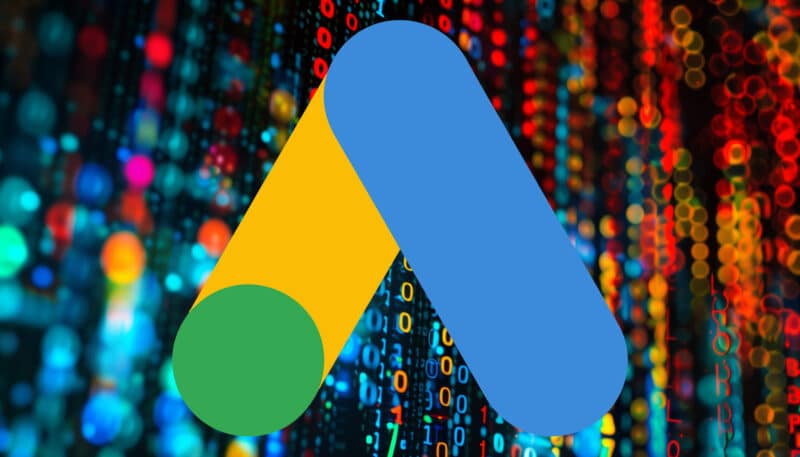
Google is introducing a new process – Change Who Pays – for transferring your client accounts to a new agency’s manager account.
Details. Google Ads sent an email sent to users about the change:
- “We’re happy to introduce a new process for transferring client accounts to a different paying manager. You may now initiate this change directly within your Ads manager account yourself, without needing to reach out to our support team. This process is called ‘Change Who Pays.”
What to do. You will need two details to complete a transfer:
- The Ads manager account ID of the new payer.
- The transfer date.
Google Ads support page. Transfer your client account to another agency
Why we care. As Georgi Zayakov put it on LinkedIn: “Finally, advertisers may now initiate this change directly within the Google Ads manager account themselves, without needing to reach out to the support team.”
The email. Here’s a screenshot of the email, shared by Zayakov:
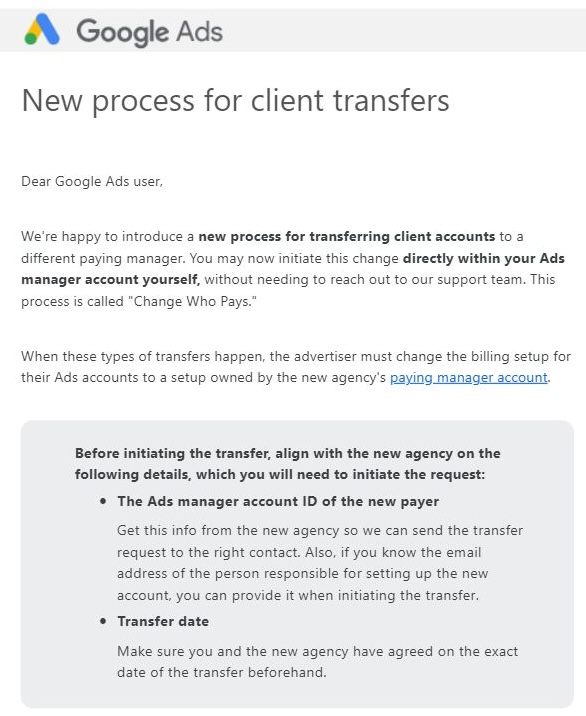
from Search Engine Land https://ift.tt/AjJstZK
via https://ift.tt/YsSe7Xv https://ift.tt/AjJstZK
Wednesday, October 2, 2024
Tuesday, October 1, 2024
Is Google using Chrome for mobile-first indexing and user signals?

Phase two of Google’s mobile-first indexing – rendering – is Chrome and has been since 2018, according to SEO expert Cindy Krum. In a newly released video presentation, Krum said:
- “What I believe is happening here is that Google failed to tell us at this time in 2018, when it launched, that what they were using for the second phase of indexing was not a bot, per se. It was our own computers in our homes. Your Chrome being used as a rendering resource became available. That means you. As someone requested the site and executed the JavaScript, they would go and fetch that from their computer. They wouldn’t use their bot to render it. They would wait until a user rendered the page for them and then they would just go capture that full-page render so that they could process it.
- “… Google [is] using our own computers to pre-process information for indexing and our own browsers to capture information and rendering. We haven’t necessarily opted into this and we’re not knowingly getting anything back.
- “…Google is also using our rendering data and our behavior – in terms of making models like cohort models and topic models, history and engagement models – and they’re using this all taking it from our local computers without permission and passing it up to their processors. Now it’s pre-processed locally so that it can be batched and sent up and then sending it to their algorithms to be further processed and evaluated. That’s how they’re able to get the rankings that they do, but also that’s how they’re able to understand things like demographic cohorts, Journeys, where you shop, and make decisions and understanding and modeling that so that they can use that data in their advertising models in PMax, in PPC campaigns. They’re using our own behavior to market to us and to train AI that serves ads to do a better job.”
Put simply in two slides:
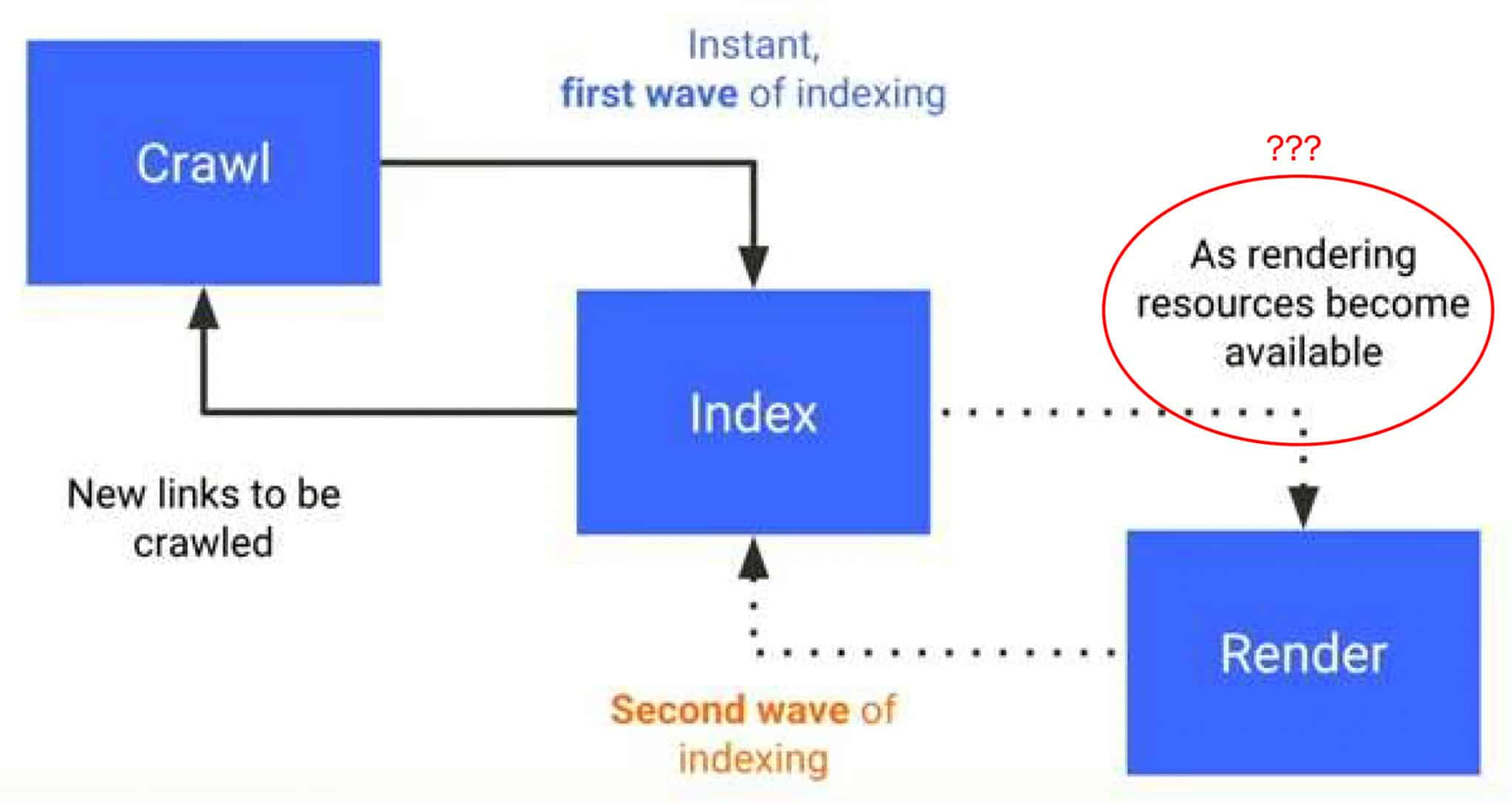
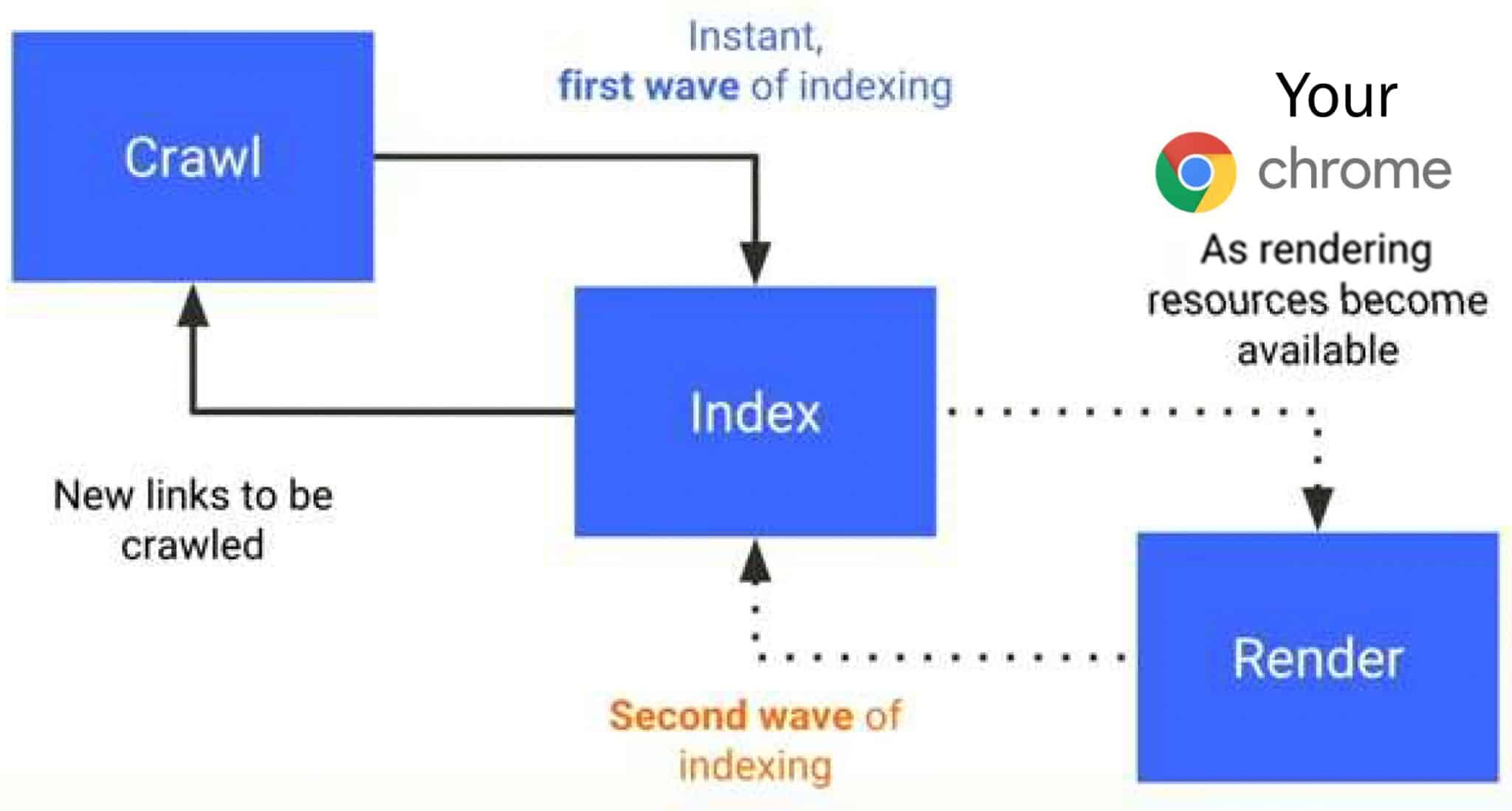
Connecting dots. There are a lot of claims made about other huge implications of Google’s switch to mobile-first indexing in Krum’s presentation, as well as how Chrome essentially fuels Google’s illegal search monopoly:
- User computers as resources: Google uses users’ devices to render and process JavaScript, which they then index – essentially outsourcing computational work to users. Essentially, Google is using Chrome in the same way your computer could be used for Bitcoin mining.
- Core Web Vitals: Google captures real user data to assess page load performance and interaction and feeds this data into its ranking algorithms.
- Browser updates and data collection: Frequent Chrome updates ensure data collection aligns with Google’s search and ad models, contributing to targeted advertising and AI training.
- Privacy violations: Google has been found indexing private data (e.g., private WhatsApp groups), likely due to its aggressive caching and data collection practices.
- Chrome’s role in AI: AI is very expensive, so Google could use Chrome’s processing model to help with AI development, giving them an edge in the AI arms race.
- Ad tracking and targeting: Google’s data collection extends into advertising models like cohort targeting and user behavior modeling for ad optimization.
- Cookies and privacy: Despite promising to end third-party cookies, Google continues to use them for extensive tracking and data collection.
Possible SEO implications. I reached out to Krum and asked her what the possible SEO implications are here if all of this is correct. She told me:
- If a page has links that never get clicked, Google is less likely to crawl it. We knew this, in theory, but now we have a better idea of how it works.
- Real user engagement is likely factoring in more than previously thought – we have known this since the Google Search leak.
- Manipulation of SERP and click information is a significant vulnerability, if it happens in Chrome.
- Actual user rendering is critical, so selective serving for GoogleBot might not be a great strategy.
Why we care. We know that Google collects extensive Chrome and end-user data from its other various services (Search, YouTube, Ads, etc.). That said, and to be clear, much of what she discusses is for now an unconfirmed theory (Krum does use the word “tinfoil” during her presentation and there are multiple “X-Files” themed slides).
When I first watched the video, I found it equal parts fantastical, inconceivable and entirely believable. It’s a lot to process. However, in light of all the revelations from the DOJ trial and the leak, nothing Krum discusses in the video seems like too wild of speculation. I’ll be curious to see whether Google responds.
Additional reading. Krum also referenced research by Malte Ubl, a former Googler, who said that “Google uses an up-to-date version of Chrome for rendering” and whose research found that “100% of HTML pages resulted in full-page renders, including pages with complex JS interactions.”
The presentation. Watch the video and decide for yourself (I suggest starting around 6:37): Phase II of Google’s Mobile-First Indexing is just Chrome.
from Search Engine Land https://ift.tt/5aOigbr
via https://ift.tt/e46ixpB https://ift.tt/5aOigbr
Monday, September 30, 2024
3 core flaws of SEO audits (and what to do instead) by Crowdo


Automated SEO audits from tools like Ahrefs or Semrush are a bane of the SEO industry.
While an SEO audit may be useful, it won’t help build your SEO strategies, achieve your KPIs and grow your business.
Your entire SEO strategy might become misdirected.
Why most SEO audits are inherently flawed
There are three big core flaws with SEO audits:
1. Limited value for decisionmakers
An audit is filled with data that’s hard to understand for anyone without an SEO background.
2. It’s often detached from the overall marketing strategy
Most automated suggestions are based on a quasi-scientific SEO score that may mean nothing for your business KPIs.
This is in addition to the typical myopia in the management ranks (e.g., if graphs show growth, we’re doing well).
Traffic growth doesn’t always benefit the business.
For example, a B2B SaaS company could waste thousands on ranking pages with poor conversion potential. Sure, the company would have lots of organic visits, but this effort is largely misplaced if those visitors don’t convert.
3. It’s static by nature
An audit merely reflects the website’s performance at a given point in time.
It’s not embedded in the dynamics of your competitive landscape and offers little value for long-term planning.
What should you do instead?
To address these issues, Crowdo came up with a tangible new format, one based on your business goals and easily digestible for non-SEO people.
Your SEO strategy needs a business foundation – cutting-edge but not overly technical. In other words, a clear and tailor-made roadmap.
Crowdo has had great success with this new format and the feedback from clients has been overwhelmingly positive.
How our SEO roadmap beats a typical SEO audit
1. It’s focused on your business priorities, not SEO metrics.
An average manager brushes off the “Domain Authority” or “organic CTR” of a specific article on your blog, and that’s OK.
Ultimately, SEO is judged based on its ROI, like any other marketing activity.
Based on your company’s maturity, you probably have a North Star metric (e.g., acquiring leads, expanding into new locations).
A clear roadmap locks on business needs and makes SEO directly contribute to your marketing goals.
P.S. This is not to hate on SEO metrics. They play their role, but they shouldn’t motivate you to invest in organic search in the first place.
2. A roadmap is easily digestible for your entire team.
An audit is for SEO gurus living in their own realm, somewhat detached from the marketing team.
So, when you assign tasks to content writers, web designers and performance marketers – they complete them without realizing the value behind them.
Then, C-levels step in and question the effectiveness of SEO altogether.
With an SEO roadmap, all technicalities are tossed aside to give way to a step-by-step plan of action that easily fits in several slides.
Sounds simple, but it makes a world of difference when your colleagues are “in the know.”
3. It helps to focus on what drives the highest impact
Your SEO to-do list can quickly become a never-ending nightmare.
However, these tasks differ a lot when it comes to importance.
For instance, adding “hreflang” attributes versus building authority backlinks. Both of these are time-consuming, but one matters more than the other.
In a roadmap, the core SEO activities are ranked by their impact score, which ranges from 1 (insignificant) to 10 (game-changing). This narrows your focus and helps manage expectations.
It also promotes a forward-looking and dynamic strategy because the impact of some tasks may change dramatically after the next big Google algorithm update.
Next steps
It’s time to ditch ineffective automated audits and embrace a simple, data-backed roadmap that aligns with your business goals.
Our SEO experts will craft a customized plan for your business at no cost.
Request your free SEO roadmap now and set your team on the path to success – no commitments involved.
from Search Engine Land https://ift.tt/aXUsqkH
via https://ift.tt/rBdqZ9b https://ift.tt/aXUsqkH
"Pothole-Free Delhi By Diwali": Chief Minister Atishi Inspect Roads
Sunday, September 29, 2024
Punjab Chief Minister Bhagwant Mann Diagnosed With Leptospirosis
On CCTV, Speeding Car Inches Behind Delhi Cop's Bike Before Killer Crash
Saturday, September 28, 2024
Delhi Cop Dies On Duty After Car Drags His Bike On Road For 10 Metres
Woman Cop, Disguised As Tourist, Takes Late Night Stroll. Then This Happens
Friday, September 27, 2024
BookMyShow CEO Summoned Over Sale Of "Fake Tickets" For Coldplay Concert
Man, 4 Daughters Found Dead At Delhi Home, Cops Suspect Murder-Suicide
Mumbai On Alert After Agencies Flag Terror Threat, Security Tightened
UP Woman Murders Her Alleged Stalker With Boyfriend's Help: Police
Thursday, September 26, 2024
Two Arrested, 2 Minors Detained For Raping 16-Year-Old Girl In Pune: Cops
The future of keyword targeting by Edna Chavira


Are you a search marketer looking to expand your reach and drive even more impactful results? Look no further. Join us for How Search Marketing Turned the Tide for CTV Audience Targeting and learn how your existing search marketing expertise can be a valuable asset on this powerful advertising platform.
Connected TV (CTV) has a new feature that you may recognize right away: keyword targeting. This Search Engine Land webinar will show you how CTV fits seamlessly into your search strategy and how to use your existing keyword knowledge to reach your target audience on the big screen.
Explore the new frontier of keyword targeting and leverage your search marketing expertise across platforms. Click here to save your spot!
from Search Engine Land https://ift.tt/J9kKj3z
via https://ift.tt/LNRMJec https://ift.tt/J9kKj3z
Man Calls To Inform About Bomb At Haji Ali Dargah, Hurls Abuses: Police
Wednesday, September 25, 2024
45-Year-Old Woman Dies After Falling Into Drain Amid Heavy Rain In Mumbai
Adopting vs. hacking Google Ads features: The great debate
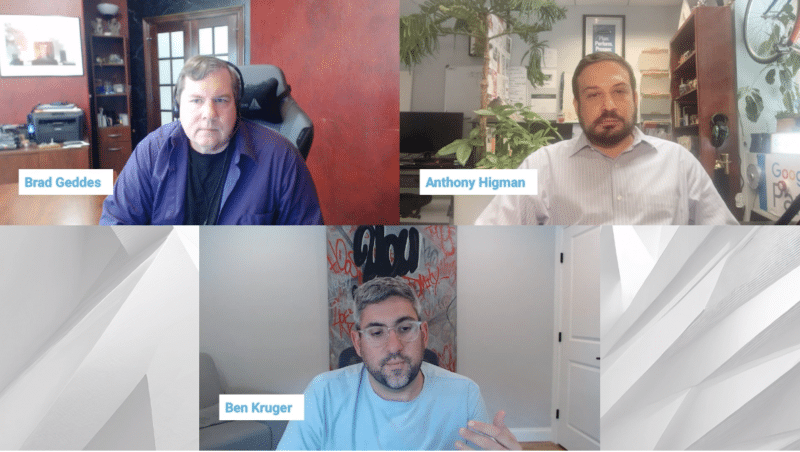
From your account reps to the interface itself, Google gives you plenty of recommendations on managing your ad campaigns. But are all of those good?
Should you ignore these recommendations and “hack” Google’s machine learning – or should you follow Google’s advice?
Two Google Ads experts – Ben Kruger and Anthony Higman – had an interesting debate on this topic at SMX Advanced.
Here are the key points from their discussion.
Performance Max (PMax) for non-ecommerce
Kruger, who was on the side of adopting, clearly took the stance that Performance Max is future and that all Google’s tools centers around it:
- “My simple answer is that PMax is clearly the future of Google. It’s where everything is heading as, you know, if you’re talking to your reps, if you’re reading documentation, if you’re watching Gmail, which which happened, recently, everything seems to center around Pmax, and it’s talked about over and over again.”
- “If you’re not learning and mastering the newest thing that Google is clearly pushing, then you’re potentially gonna get left behind when inevitably, whatever you’re used to gets sunsetted, deprecated or you’re forced to migrate over to PMax.”
PMax offers growth opportunities through AI-driven insights across various channels, but Kruger advised against relying solely on it, suggesting it should be part of a broader, strategic approach that includes learning from PMax to enhance dedicated campaigns.
Higman, who was on the side of hacking, said non-ecommerce brands, in particular, should avoid PMax. He sees “a lot of problems” with it:
- “I do understand that Google is aggressively pushing PMax, But just because Google is pushing something doesn’t mean that everybody should jump on board.
- “The more people that adopt PMax because of Google’s push for the new shiny object, the more they make it easier to deprecate certain things.
- “My main beef with PMax is, again, the lack of transparency. They clearly wanna push everybody in automation, which I disagree with because not everybody fits into that box.”
Higman emphasized the importance of maintaining control and visibility over ad spend, especially for those with smaller budgets. He also expressed concern that widespread adoption of PMax could lead to the deprecation of more transparent tools.
Best match type
Kruger said there is a place for exact match, but if he had to choose, it would be broad match:
- “Queries are getting way more, unique, specific and long tail. People are going to be conversing with Google search, asking it different ways, maybe using voice, maybe searching on Google Maps. Queries are evolving, and you’ll never be able to cover that with exact match.
- “Broad match is analyzing past searches that this user has made, their location, thousands of other signals that only Broad Match has.
- “With a growth mindset, it’s gonna find you new keywords. So with an exact match, your search terms are all your keywords, and you’re not gonna be able to move to that next frontier of growth to find new queries for you to acquire.”
Broad match is more effective in capturing the increasingly unique, specific and long-tail queries users are making, according to Kruger. It leverages Google’s AI to understand consumer intent and match ads to relevant searches by analyzing various signals, including the user’s past behavior and the content of landing pages.
Higman’s all-time favorite, of the present and past match types, is broad match modifier. But sticking to what is possible, he said he prefers exact match.
- “This is another one of those control things. As Google removes control, their revenue goes up. Advertisers kinda get a little bit watered down results.”
- “So I am a proponent of exact match, keeping things as tight as possible, and really targeting what you want to target.”
Kruger also noted that while exact match may be more expensive, it offers tighter control and more precise targeting compared to other match types. Despite still using phrase match for specific purposes, exact match is currently his preferred choice for achieving targeted campaign results.
Automation vs. control
When posed the question of automation versus control, Kruger said performance is what matters:
- “That’s a trick question. I think the answer is performance, and I don’t care how I get there. That’s that’s all that matters to me, and I’m gonna use the best tools available to get the performance and the growth”
- “That’s automation because it allows for performance at scale. I’m constantly finding new opportunities, for performance, and I’m able to find new levers of growth, to move my business along.”
While control is important, particularly for agencies focused on hitting specific targets within platforms like Google Ads, relying solely on controlled methods limits growth potential, Kruger said.
Balance is key, Kruger said, where strategic controls are combined with automation to drive significant business growth. In his experience, automation has consistently delivered the best performance outcomes.
Unsurprisingly, Higman’s stance is “1,000% control”:
- “Google is pushing everybody into automation, which, again, it does have its use cases. I’m not saying that it does not, but we need to keep control to keep results.”
- “I think that as privacy legislation meets automation, there’s gonna be a lot of problems down the road as there’s less data that can be fed to the the automation because of privacy legislation, things are gonna get wonky.”
- “I also think from an agency perspective, control is extremely important. Client’s don’t want these weird things that are gonna happen with automation that bring in different kind of things that they’re really not going after.”
Higman is concerned that automation, with its lack of transparency, could lead to undesirable outcomes and urges others to resist the push toward automated systems that reduce control.
RSA (Responsive Search Ads) strategy
Maximizes all the headlines and descriptions that RSA’s have to offer, Kruger said:
- “I completely max them out: 15 headlines, 5 descriptions, 20 images, all extensions, etc.
- “I have seen first-hand that creative is targeting. You could have two different ad groups with the same keywords in it and if you change the assets in one of the RSAs to better match that keyword, the search terms that match to that ad group will move to the one that’s more relevant.
- “Formats are completely gonna change. And by having a diverse set of assets in an RSA, you can increase your chances of landing different placements that those with an ETA definitely could not get into.”
As search engine results pages (SERPs) evolve, having a diverse set of assets in RSAs increases the chances of securing different placements, something expanded text ads (ETAs) cannot achieve, according to Kruger.
But Higman is not a fan of RSAs. He said:
- “I think that the best RSA strategy is not RSAs. We still have accounts that have expanded text ads in them, and they outperform RSAs by miles every time, and they get all of the conversions.
- “My RSA strategy is to keep RSAs as close to ETAs as possible.
- “So we will only provide the minimum required headlines and descriptions, and we will pin those into place exactly where we want them based on past performance on expanded text ads.”
While Higman acknowledged the potential of RSAs to match headlines and descriptions to searches, that hasn’t been his experience. Overall, he has found that ETAs still significantly outperform RSAs.
Both experts agreed that ad strength scores may not be indicative of performance.
Nuanced perspectives
It should be noted that with each point each expert conceded that their “opponent” made valid points:
- Higman conceded that automated solutions could benefit larger advertisers aiming for broad reach.
- Kruger suggested that control-focused strategies might be more suitable for businesses with limited capacity to handle high lead volumes
The debate highlighted the ongoing tension in the PPC community between embracing Google’s automation push and maintaining granular control over campaigns.
The key takeaway is that while Google is clearly moving toward more automated solutions, the best approach depends on an advertiser’s specific goals, budget and capacity for growth.
Watch: The great debate: Should you hack or adopt Google Ads features?
You can watch the full session from SMX Advanced here:
from Search Engine Land https://ift.tt/rIbnc19
via https://ift.tt/KHMjbGL https://ift.tt/rIbnc19
Tuesday, September 24, 2024
Ex Army, CBI Chiefs Clash Over Alleged Torture Of Woman At Police Station
7 Killed As Car Rams Trailer Truck In Gujarat's Sabarkantha
Kolkata Man Arrested For Filming Post Office Employee In Women's Washroom
Monday, September 23, 2024
Ashok Gehlot's Ex-Aide Summoned Again In Phone Tapping Case
Railway Staffer Arrested For Setting Off "Harmless" Detonators On Tracks
Maharashtra Approves Proposal To Change Pune Airport's Name To...
Google Ads adds Video Enhancement for Performance Max
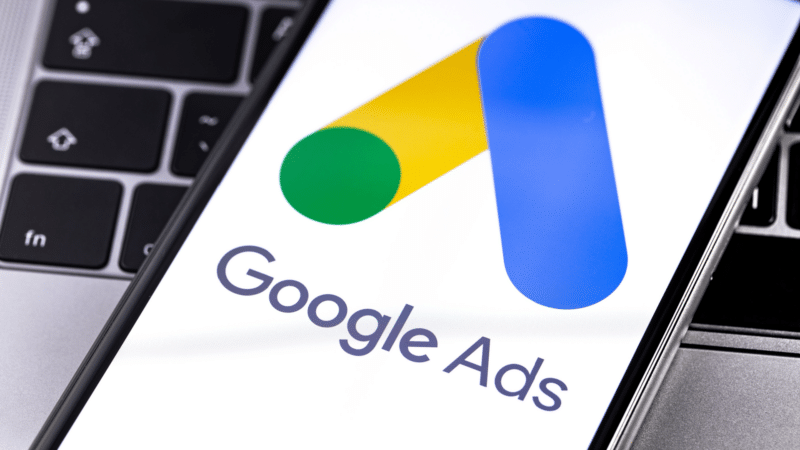
Google Ads is rolling out a new Video Enhancement feature for Performance Max (PMax) campaigns. This feature aims to improve video ad performance through automated adjustments.
Why we care. The feature is designed to optimize video creatives, but you may not want to give Google this level of control. So, depending on many caveats, it may be worth testing.
What’s happening. Advertisers reported seeing this feature in some campaigns, with the option being automatically opted-in by default.
Reactions. Some advertisers are wary of Google’s use of terms like “enhance” and “optimize,” suggesting a cautious approach to automated adjustments that could affect campaign outcomes.
- Odi Caspi, Founder at EffectiveMarketing.uk responded to this update – “Any time Google use terms like ‘Enhance’ or ‘Optimise’ I get nervous”
First seen. This update was first brought to our attention by Natasha Kaura on X:
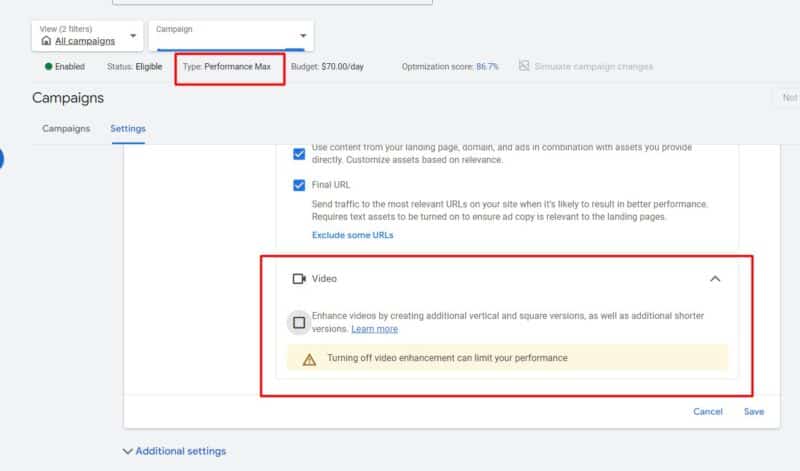
Bottom line. As Google continues to introduce AI-driven enhancements to its ad tools, advertisers should monitor how these changes impact campaign performance, and adjust settings as needed to maintain control over their creative assets.
from Search Engine Land https://ift.tt/MyNmIkQ
via https://ift.tt/iw9VaEs https://ift.tt/MyNmIkQ
Sunday, September 22, 2024
Key Suspect In Tamil Nadu BSP Leader's Murder Case Killed In Encounter
Brazilian Woman Arrested After 124 Cocaine Capsules Found In Her Body
"Had To Beg To Pay Son's Fees": Manish Sisodia Recounts Time After Arrest
Chennai Techie Dies By Suicide, Was Under Treatment For Depression
Chennai Techie Dies By Suicide, Was In Depression Over Work Pressure: Cops
Saturday, September 21, 2024
Kolkata's Trams: How City's 151-Year-Old "Glory" Is Dying A Slow Death
Friday, September 20, 2024
BJP Leader Congratulates Atishi, Takes Dig At 'Inefficient' AAP Leadership
TISS Students Face Police Action In Campus, Despite Peaceful Protests
Kolkata Rape Murder: Junior Doctors Resume Duties In Bengal After 42 Days
Thursday, September 19, 2024
Amazon Ads launches AI-powered video
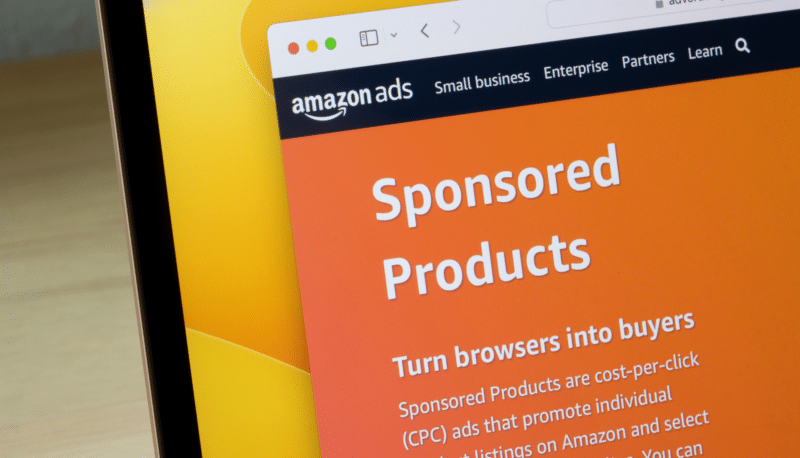
Amazon Ads today unveiled new generative AI features aimed at helping advertisers create more engaging video and image content.
- The tools include Video generator and live image capabilities, both currently in beta for select U.S. advertisers.
Why we care. Time and cost are big challenges when it comes to creating good quality video content for campaigns. These AI-powered tools address these key challenges.
By the numbers.
- 89% of consumers want to see more videos from brands in 2024, according to a Wyzowl study.
- Businesses cite lack of time and cost as the top barriers to video marketing.
How it works.
- Video generator creates custom video content in minutes using a single product image.
- Live image allows brands to produce short, animated campaign images quickly.
What they’re saying. “Video generator is another meaningful innovation that leverages generative AI to inspire creativity and deliver more value for both advertisers and shoppers,” said Jay Richman, VP of product and technology for Amazon Ads.
Between the lines. These tools are part of Amazon’s growing suite of generative AI solutions similar to how all other tech giants continue to lean into more AI solutions.
What’s next. Amazon plans to refine these features based on beta advertiser feedback before a wider release.
from Search Engine Land https://ift.tt/sDrk4wN
via https://ift.tt/tSVowHC https://ift.tt/sDrk4wN
Mumbai Ex-Top Cop Sanjay Pandey Joins Congress Ahead Of State Polls
Wednesday, September 18, 2024
2 Year-Old Who Fell Into Pit In Rajasthan Rescued After 20-Hours Operation
Body Of Woman Found Stuffed Inside Suitcase Near Chennai's IT Corridor
New guide: Improve your Google Ads performance by Digital Marketing Depot
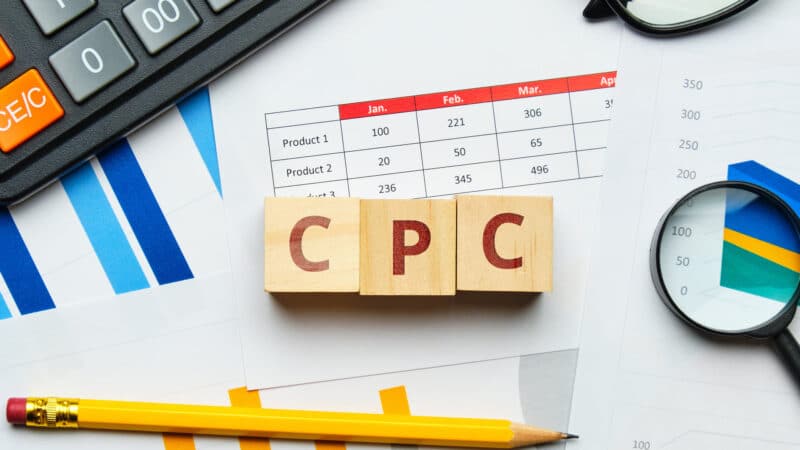

Discover actionable insights to optimize your Google Ads campaigns and achieve maximum ROI. This new guide from Instapage offers advice on:
- Improving Quality Score and ad relevance
- Targeting the right audience with precision
- Optimizing bidding strategies for maximum efficiency
- Creating high-converting landing pages
Download the Guide to Cost-Effective Google Advertising today and start implementing these strategies to boost your Google Ads performance and drive more conversions.
from Search Engine Land https://ift.tt/TaexItn
via https://ift.tt/2CKbalc https://ift.tt/TaexItn
Google wins $1.7B EU antitrust fine appeal

Google successfully challenged a €1.49 billion ($1.66 billion) antitrust fine imposed by the European Union in 2019.
- The EU’s General Court annulled the fine, citing the European Commission’s failure to consider all relevant circumstances.
Why we care. This ruling marks a significant victory for Google in its ongoing legal battles with EU regulators and highlights the challenges faced by antitrust enforcers in their efforts to rein in Big Tech. This could also create a favorable precedent that helps Google in the ongoing case with the Department of Justice in the U.S.
The big picture. The case is part of a broader crackdown on tech giants by EU antitrust chief Margrethe Vestager, who has had mixed success in defending her decisions in court.
- Last week, Vestager secured major wins against Google in a separate case and against Apple’s tax deal with Ireland.
Details. The fine was related to Google’s AdSense platform and alleged anticompetitive practices from 2006 to 2016.
- The court agreed with many of the Commission’s assessments but found that it failed to prove the harm to innovation, competition and consumers.
- Google had already made changes to its contracts in 2016 to remove the relevant provisions.
Between the lines. This case focused on a narrow subset of text-only search ads on certain publishers’ websites, which Google emphasized in its response to the ruling.
What’s next. The European Commission can appeal the Google ruling to the European Court of Justice on points of law.
- The Commission said it would study the judgment and consider possible next steps.
Bottom line. This ruling underscores the ongoing legal challenges faced by both tech giants and regulators in the complex landscape of digital competition.
from Search Engine Land https://ift.tt/iRa54tH
via https://ift.tt/2CKbalc https://ift.tt/iRa54tH
Tuesday, September 17, 2024
Railway Official Loses Rs 9 Lakh Online As Fraudsters Pose As CBI Men
How Google Search Reunited Two Senior Citizens With Their Families
The 5 core focus areas of website optimization by Edna Chavira


Get ready to elevate your online presence with our comprehensive guide to website optimization. This webinar will walk you through essential strategies for improving your website’s performance across key focus areas.
Join Mary Palumbo, Director of SEO Analysts & Marketplace at Conductor, and Kerri Kirkhuff, Sr. Customer Success Manager at Conductor as they discuss how to attract more visitors, enhance user experience, and drive conversions with practical, actionable advice. Register now to secure your spot!
from Search Engine Land https://ift.tt/9KmYSGx
via https://ift.tt/ilK9qYf https://ift.tt/9KmYSGx
Video: Python Spotted At Village In Noida, Released Into Forest
"Make Your Son Chief Minister": Atishi To Delhi On Replacing Arvind Kejriwal
Monday, September 16, 2024
Ganesh Visarjan In Mumbai Begins As Large Number Of Devotees Gather
4 Killed, 6 Injured In Explosion At Firecracker Factory In UP: Cops
3 Drunk Cops Arrested From Police Station In Dry State Bihar
Sunday, September 15, 2024
Who Will Replace Arvind Kejriwal As Delhi Chief Minister? The Faces In Focus
Saturday, September 14, 2024
9 Of Family Dead As Building Collapses In UP, Op On For 15 Hours To Rescue 4
"Our Jobs At Risk": IndiGo Flight Delayed, Mumbai-Doha Flyers Angry
6 Pilgrims Killed In Accident In Rajasthan, Cops Hunt For "Unknown" Vehicle
Friday, September 13, 2024
Atiq Ahmed's Two Plots Worth Rs 6 Crore Attached By UP Police
Google Ads bug hits GCLID conversion tracking
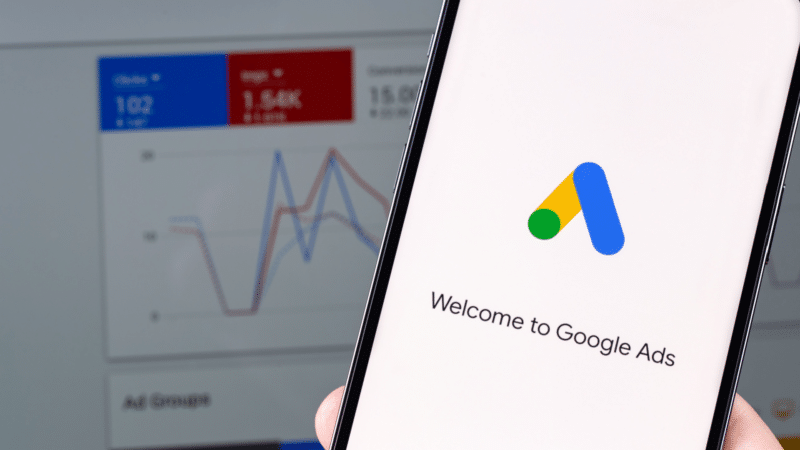
Some advertisers are reporting issues with Google Ads’ GCLID (Google Click Identifier) offline conversion uploads, starting on Sept. 12.
Although uploads are marked as successful, the associated conversion actions are showing zero results.
Why we care. Conversion data is the backbone of measuring campaign effectiveness. Without accurate tracking, it’s impossible to assess ROI, optimize bids, or make informed decisions on ad spend.
Driving the news: Multiple advertisers, including Benjamin Wenner and Josiah Daves, flagged the issue on X, noting missing conversion data across several accounts. Daves reported that more than 250 of their accounts have been affected, with conversions dropping off after 2 p.m. EST on September 12.
The response. The Google Ads team is aware of the issue and is investigating with urgency, Google Ads Liaison Ginny Marvin confirmed. The bug seems to be specific to GCLID-based offline conversions, with standard conversion tags unaffected.
What’s next. Advertisers are awaiting further updates from Google as the investigation continues, hoping this is just a visual reporting error rather than a deeper data loss. Be first to find out the resolution on this issue by following the Google Ads Status Dashboard.
from Search Engine Land https://ift.tt/XTd58zs
via https://ift.tt/GOkEzCp https://ift.tt/XTd58zs
Delhi Breathes Its Cleanest Air Of The Year So Far, Air Quality Index At...
Thursday, September 12, 2024
Haryana Polls: Richest Woman Savitri Jindal To Contest As Independent
Use DAM and AI to keep up with content demands by Edna Chavira

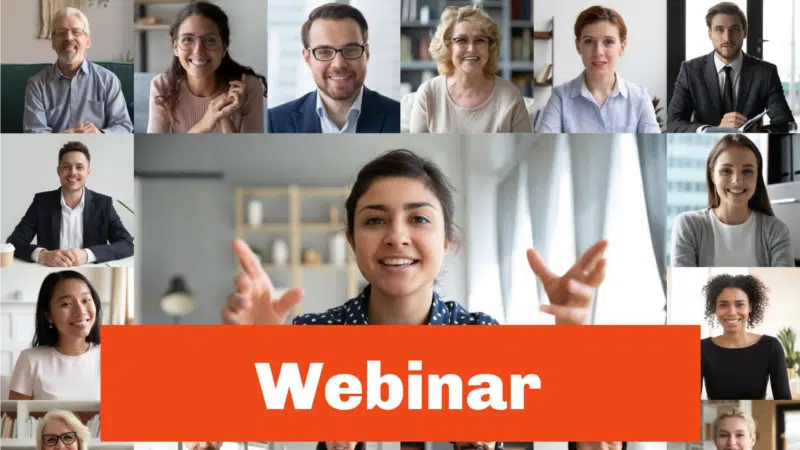
Are you overwhelmed by the constant demand for new content? AI and Digital Asset Management (DAM) can be your secret weapons for keeping up with content demands and delivering exceptional digital experiences.
Join us for Acquia’s upcoming webinar, Driving Brand Growth: Using DAM and AI to Keep Up With Content Demands. Our expert panel will discuss:
- DAM’s role in branding and digital experience management
- Best practices for seamless migration and strategic tech consolidation
- How to effectively integrate tech stacks, content, and teams
Don’t miss this opportunity to gain valuable insights and stay ahead of the curve. Register now to secure your spot!
from Search Engine Land https://ift.tt/LIm7x2P
via https://ift.tt/2xPqnRz https://ift.tt/LIm7x2P
YouTube First Position Ads now available across Display & Video 360
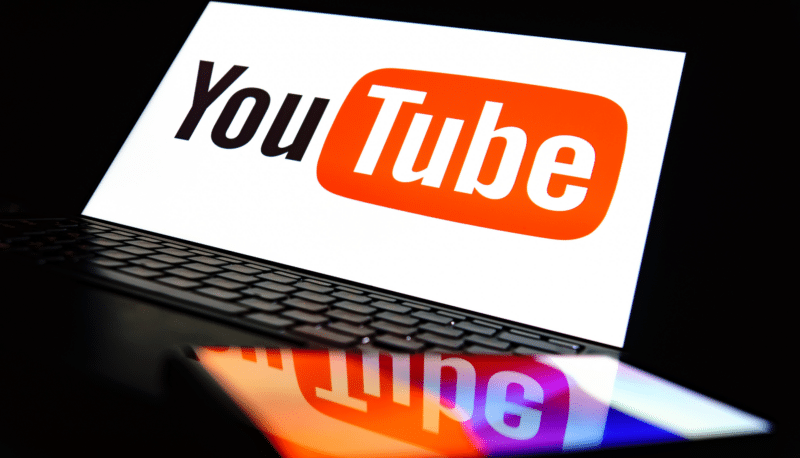
First Position has been expanded to include all YouTube content through Display & Video 360, offering it at dynamic CPM rates. Previously, this feature was only available on YouTube Select inventory at fixed rates.
- Now, advertisers can secure prime ad placement at the beginning of a YouTube session across any content, enhancing relevance and impact.
Why it matters. With YouTube being the largest streaming video website in the world (boasting 1 billion hours of video being watched a day) there is a lot of opportunity if you use video assets in your campaigns. With First Position, you can now ensure your ad is the first one viewers see when watching YouTube content, maximizing visibility during critical moments and potentially driving higher engagement and brand recall.
Details. First Position guarantees that an ad will be the first in-stream spot when users begin watching YouTube, making it ideal for key campaigns like product launches or cultural events.
Case studies. As usual, Google cited well-known household brands like Booking.com and IHG Hotels & Resorts as already seeing success with First Position, so you shouldn’t necessarily expect to replicate such results if you don’t have similar resources. Booking.com drove a 21% lift in ad recall, while IHG combined it with YouTube Sponsorships to achieve double the brand awareness benchmark.
What’s next. Advertisers can now leverage First Position for any campaign across YouTube’s entire content library. For more details, visit the Help Center for Instant Reserve in Display & Video 360 or Reservations in Google Ads.
from Search Engine Land https://ift.tt/Cx06YNO
via https://ift.tt/2xPqnRz https://ift.tt/Cx06YNO
Wednesday, September 11, 2024
Maharashta Man Thrashed For Feeding Pigeons, Case Filed Against 4
Google adtech antitrust trial: Everything you need to know
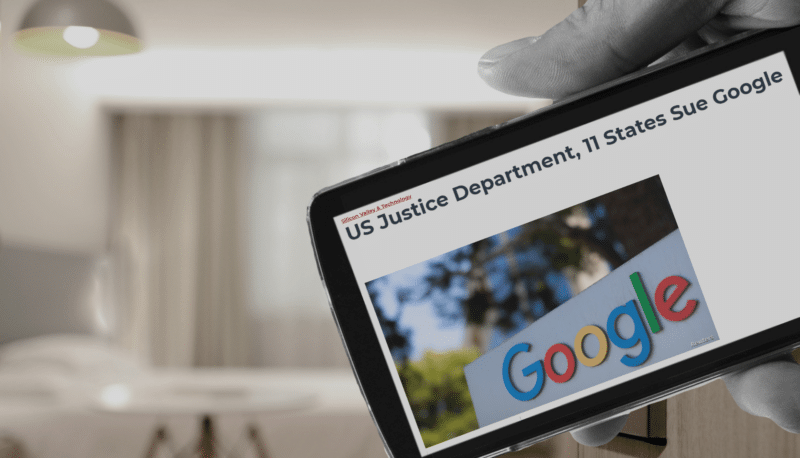
Google is on trial for allegedly abusing its dominance of the $200 billion digital advertising industry.
The U.S. Department of Justice claimed that through acquisitions and anticompetitive conduct, Google seized sustained control of the full advertising technology (“adtech”) stack: the tools advertisers and publishers use to buy and sell ads, and the exchange that connects them.
In response, Google denied the claims stating several ad companies compete in the space, a mixture of tools are used so they don’t get the full fees, their fees are lower than industry average and small businesses will suffer the most if they lose this case.
The outcome of the landmark case could bring significant changes to Google and publishers. However, experts argue that could seriously hurt advertisers as well.
It’s equally possible the trial will result in no changes and Google will be free to continue operating as it wants.
Day 1: Accusations and badgering of witnesses (Sept. 9)
DOJ laid out their accusations as follows:
- Google controls the advertiser ad network.
- Google dominates the publisher ad server.
- Google runs the ad exchange connecting the two.
Google’s defense:
- Disputed the definition of open-web display ads.
- Argued the DOJ’s market definition is “gerrymandered” – the DOJ are manipulating the boundaries of their definition to make Google out to be the bad guy.
- Presented a chart showing competitors like Microsoft, Amazon, Meta, and TikTok.
Bottom line. This trial could determine whether Google’s control over digital advertising constitutes an illegal monopoly, potentially affecting how information is disseminated online.
What’s next. The trial is expected to last several weeks. If the DOJ wins, Google could face up to $100 billion in advertiser lawsuits, according to Bernstein analysts.
Deep dive. Read our Google antitrust trial guide for a breakdown of everything you need to know from the first trial last year.
This article will be regularly updated with the latest developments from this landmark trial.
from Search Engine Land https://ift.tt/tqpRDG9
via https://ift.tt/lcOhVEy https://ift.tt/tqpRDG9
Watch: 8-Foot Python Found Inside Potato Box In Maharashtra Hotel
Tuesday, September 10, 2024
Sayed Haider Raza's Painting Worth Rs 2.5 Crore Stolen From Mumbai Warehouse
Child Labourer Rescued From Samajwadi Party MLA's House In UP
Delhi Man Dies Of Electrocution After Touching Electric Pole: Cops
Monday, September 9, 2024
CCTV Shows Audi Owned By Maharashtra BJP Chief's Son Ramming Vehicles
Father Killed, Daughter Injured After MCD Truck Rams Into Bike In Delhi
Clash In Surat After Stones Thrown At Ganesh Pandal, 32 Detained
Sunday, September 8, 2024
Attempt Made To Derail Train By Placing LPG Cylinder On Tracks In Kanpur
Man Rapes, Kills Masseuse Over Demanding More Money In Gurugram: Cops
Saturday, September 7, 2024
7 Police Teams, 500 Cameras: How Cops Tracked Down Missing Noida Boys
Giant Python Gets Into Power House In Lucknow, Causes Outage
Woman Running On Metro Track In Delhi Rescued By Security Personnel: Cops
Friday, September 6, 2024
Video: Denied Food, Drunk Driver Rams Truck Into Hotel In Pune
Google Ads to deprecate enhanced CPC for Search and Display Ads
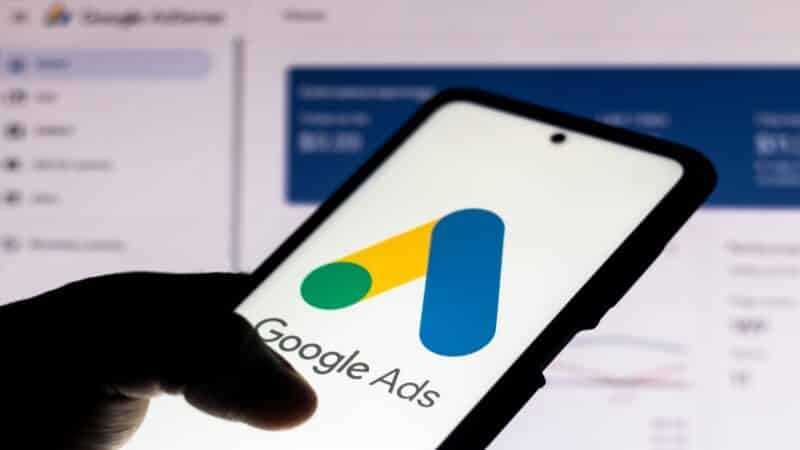
Google Ads will phase out the option to use enhanced cost-per-click (eCPC) for new Search and Display campaigns starting in October.
Key dates:
- October: eCPC option removed for new campaigns.
- March 2025: All remaining eCPC campaigns transitioned to Manual CPC.
Why we care. ECPC is the most light touch of automated bid strategies, so it allowed you to dip your toe into automated bidding without giving Google full control by just working toward a conversion target. Google is taking that away. If you haven’t started testing which fully automated bid strategies work for your campaigns, now is the time. This change will impact how you manage your Search and Display campaigns.
Options. Google introduced enhanced CPC in 2010 as a Smart Bidding strategy to optimize bids based on conversion likelihood. However, newer machine learning options like Maximize conversions (with optional target CPA) and Maximize conversion value (with optional target ROAS) offer more automated tools to improve performance.
First seen. Anthony Higman shared the email he received from Google about this update on X.
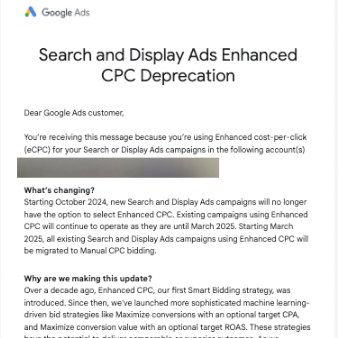
Zoom out. The shift to more advanced automated bidding strategies signals Google’s push toward greater reliance on machine learning and possible introduction of more automated bidding strategies.
from Search Engine Land https://ift.tt/kglPaOL
via https://ift.tt/cxt0o5w https://ift.tt/kglPaOL
YouTube Studio adds new website visits goal for promotions
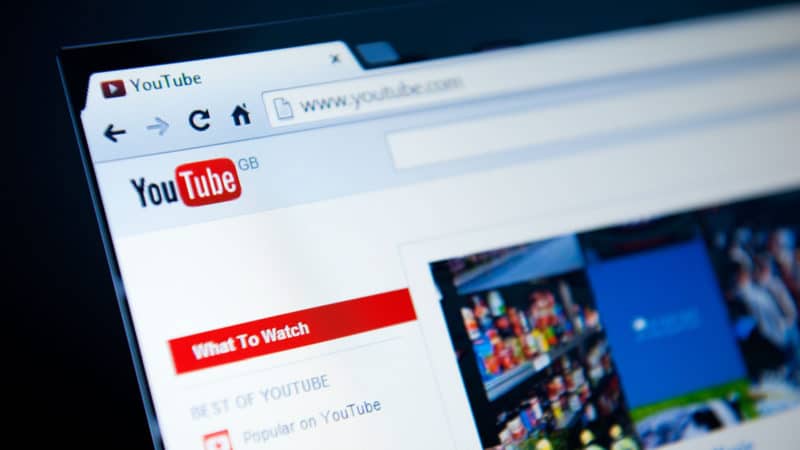
YouTube rolled out a new “website visits” goal in YouTube Studio’s promotions feature. This goal allows creators to drive traffic directly to their websites while growing their channel’s audience and video views.
Why we care. This update makes it easier for you to turn video views into website visits, helping to promote products or services directly from your channel. By targeting specific countries and languages, you can streamline ads for optimal results.
The details:
- Creators can set up video promotions within YouTube Studio by choosing from three goals: audience growth, video views or website visits.
- Ads appear in formats like Shorts, in-feed, and skippable in-stream, labeled as “Sponsored.”
- It’s important to note that any engagement from these ads doesn’t contribute to YouTube Partner Program eligibility.
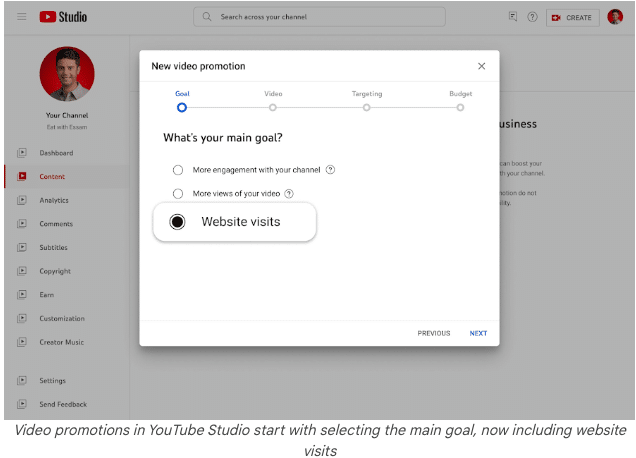
Bottom line: The new website visits goal gives creators an easy-to-use tool for expanding business footprint beyond YouTube.
from Search Engine Land https://ift.tt/zBtbZGV
via https://ift.tt/cxt0o5w https://ift.tt/zBtbZGV
Thursday, September 5, 2024
Shinde Sena Leader, Mob Attack Dalit Over Temple Entry; Case Filed: Cops
Woman Held Hostage At Knifepoint By Instagram Friend In Gujarat
Himachal Bus Driver, Mechanic Arrested For Sexually Harassing Woman
Wednesday, September 4, 2024
Google Search testing new display for forum content
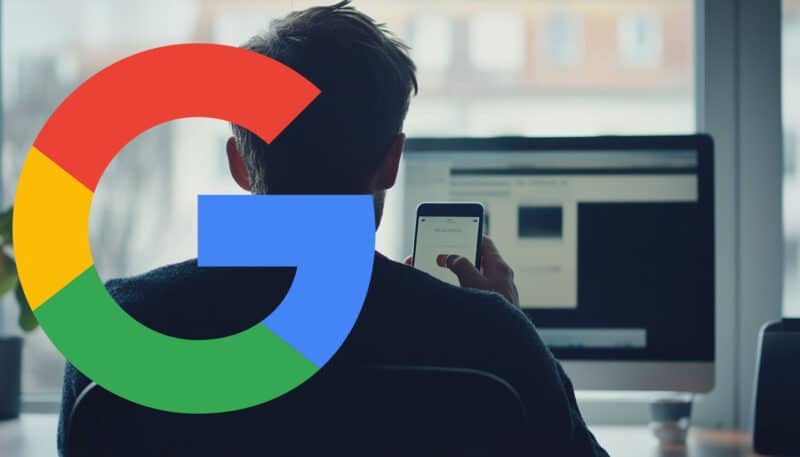
Google is testing a new display and user interface for forum content within its search results. “We’re testing a new display for forum content when it appears in search results, allowing people to quickly view top comments and related discussions to help them find useful information and dig deeper,” a Google spokesperson told us.
What is this new display. The new display will highlight the “top comments” on a specific discussion forum thread and then also highlight related discussions on that topic.
Google told us that searchers often want to learn from others’ experiences with a topic, and because of that, Google is trying new ways to highlight those experiences in Google Search. This is in addition to the “Discussions and Forums” feature and the Forums filter, previously named perspectives.
Google has shown “top answers” for years, a decade actually, but this new UI shows more to the searcher. Google told us also that in some cases, Google has agreements from a forum to show these additional details. I assume this is about the Reddit partnership. But Google added that it surfaces content from hundreds of forums and other communities across the web.
What it looks like. Here is a mock up of the interface that a Google representative sent me, showing the “top comments” section” and also the “related content” section – you can click to enlarge the image:

No impact on rankings. Google said this search feature has no impact on rankings. Again, it does not affect how forum pages rank in Google Search for a given query. This is just a new way for people to access this content, and it appears on searches where forum content would have already surfaced in results.
Why we care. Like Google doesn’t show enough forum content, i.e. Reddit, in the search results, Google is now testing showing this content with new features. Google will show the top comments and related comments for these forum results.
We’ve seen Google testing various flavors of this before, but this one seems different.
It is unclear when and if this will fully roll out but Google is testing it now to see how it performs.
from Search Engine Land https://ift.tt/n3hROrg
via https://ift.tt/geQcJD1 https://ift.tt/n3hROrg
Amritsar Resident Doctor Alleges Harassment By Bike-Borne Man In Campus
Google Ads Introduces New Masthead Format Requirements Page
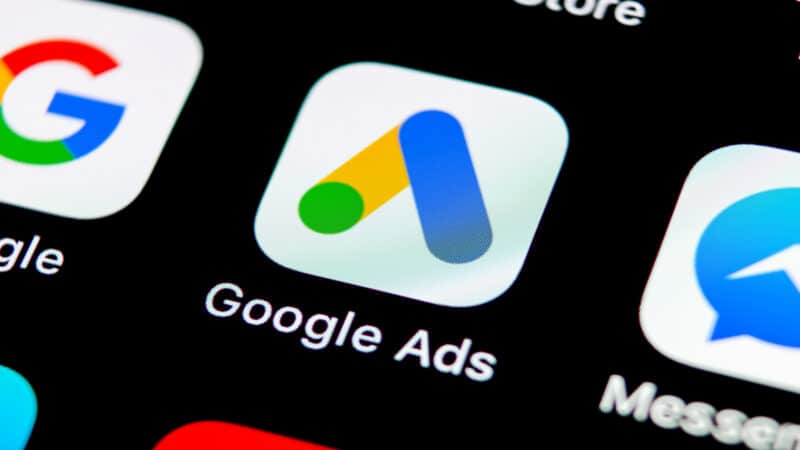
Google will launch a new consolidated resource on Oct. 3, called “Masthead format requirements.” This new page will streamline all requirements for masthead ads across YouTube and Google TV, providing a centralized reference point for advertisers.
Why we care. While the specific requirements for YouTube masthead ads remain unchanged, this move to consolidate guidelines into one location simplifies the process for advertisers. Ensuring compliance with these requirements is crucial, as non-compliant ads will not be eligible to serve as masthead ads.
What’s happening.
- Launch date: The new help center page will go live on Oct. 3.
- Preview available: A preview of the Masthead format requirements is accessible, so you can familiarize yourself with the consolidated guidelines ahead of the official launch.
- Policy enforcement: The English version of this page will serve as the official language for policy enforcement, although translated versions will be available for reference.
Bottom line: You should review the Masthead format requirements to ensure their ads comply and remain eligible to serve on premium surfaces like YouTube and Google TV. With the official launch just weeks away, taking action now can prevent disruptions in campaign performance.
from Search Engine Land https://ift.tt/j1IFw8C
via https://ift.tt/geQcJD1 https://ift.tt/j1IFw8C
Tuesday, September 3, 2024
Google August 2024 core update rollout is now complete

Google’s August 2024 core update is now done rolling out, a Google spokesperson told us. It started on August 15, 2024 and completed 19 days later on September 3, 2024. This update caused a lot of ranking movement and changes to the overall Google Search results.
As we said before, this update is not just a normal core update. The August 2024 core update took into account the feedback Google heard since the September 2023 helpful content update that seemed to have a negative impact on many small and independent publishers.
What we saw. In fact, we saw some movement for the first time with some (not all) sites hit by that update. I recent poll I ran showed that most who took the poll were negatively impacted by the last core update:
- 44% said My Rankings/Traffic Are Down (total votes 1,583)
- 27% said My Rankings/Traffic Are Up (total votes 993)
- 29% said No Change (total votes 1,038)
Overall, it seems like while we saw some recoveries from the September helpful content in 2023, that was only for a few sites and limited recoveries. Most sites did not see significant or meaningful recoveries, from what we can tell. And even more sites saw even more declines or just stayed the same.
Ranking bug. The first four or so days of the August core update, we also had a big search ranking bug that was fixed 4 days later. So, you should disregard any movement you saw during those first four days or so. You should compare the rankings and traffic you have seen from Google this week, going forward, compare to the weeks prior to the release of the August core update.
What Google said about the August core update. John Mueller, Search Advocate at Google, wrote when the update was originally released.
- “Today, we launched our August 2024 core update to Google Search. This update is designed to continue our work to improve the quality of our search results by showing more content that people find genuinely useful and less content that feels like it was made just to perform well on Search.”
Google said this update aims to promote useful content from small and independent publishers, after Google listened to feedback it received since the release of the March 2024 core update. Mueller added:
- “This latest update takes into account the feedback we’ve heard from some creators and others over the past few months. As always, we aim to connect people with a range of high quality sites, including ‘small’ or ‘“’independent’ sites that are creating useful, original content on relevant searches. This is an area we’ll continue to address in future updates.”
This August 2024 core update “aims to better capture improvements that sites may have made, so we can continue to surface the best of the web,” Mueller added.
Guidance updated. Google posted several updates to its help page about core updates, including more in-depth guidance for those who may see changes after an update.
Previous core updates. The previous core update – the March 2024 core update – was the largest core update, according to Google. It started March 5 and completed 45 days later on April 19.
Here’s a timeline and our coverage of recent core updates:
- The March 2024 core update was on March 5th and ended on April 19.
- The November 2023 core update was on November 2nd and ended on November 28.
- The October 2023 core update was on October 5th and ended on October 19
- The August 2023 core update was on August 22nd and ended on September 7.
- The March 2023 core update was on March 15th and ended on March 28th.
- The September 2022 broad core update was less impactful than previous core updates and finished on Sept. 26.
- The May 2022 broad core update was a significant and fast update.
- The November 2021 core update
- The July 2021 core update.
- The June 2021 core update, which was slow to roll out but a big one.
What to do if you are hit. Google has given advice on what to consider if you are negatively impacted by a core update in the past. Google has not really given much new advice here.
- There aren’t specific actions to take to recover. A negative rankings impact may not signal anything is wrong with your pages.
- Google has offered a list of questions to consider if your site is hit by a core update.
- Google said you can see a bit of a recovery between core updates but the biggest change would be after another core update.
In short, write helpful content for people and not to rank in search engines.
- “There’s nothing new or special that creators need to do for this update as long as they’ve been making satisfying content meant for people. For those that might not be ranking as well, we strongly encourage reading our creating helpful, reliable, people-first content help page,” Google said previously.
Why we care. By now, you should probably see the trend of this update and how it may have affected your website. If you noticed improvements, then great – if not, then maybe you have more work to do so Google will deem your site helpful enough to rank better in the Google search results.
Google releases core update every few to several months, so you should always continue to work on improving your site and the content on your site. Future updates may benefit your site’s ranking and Google traffic – so always be working on improvements – not just for Google Search but also for your website users.
Google did tell us there won’t be a feedback form for this update.
from Search Engine Land https://ift.tt/KojtnQD
via https://ift.tt/h15lOvQ https://ift.tt/KojtnQD